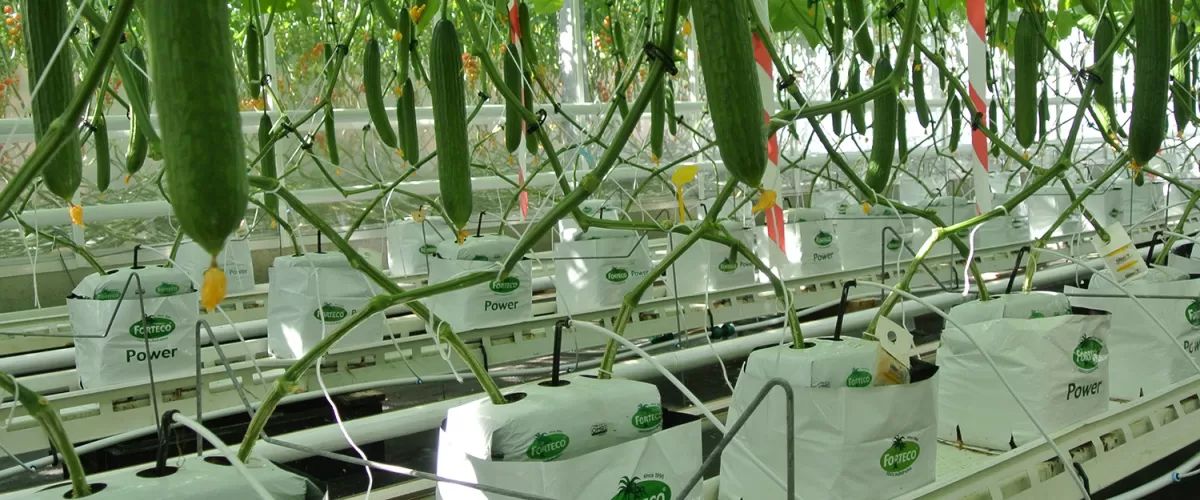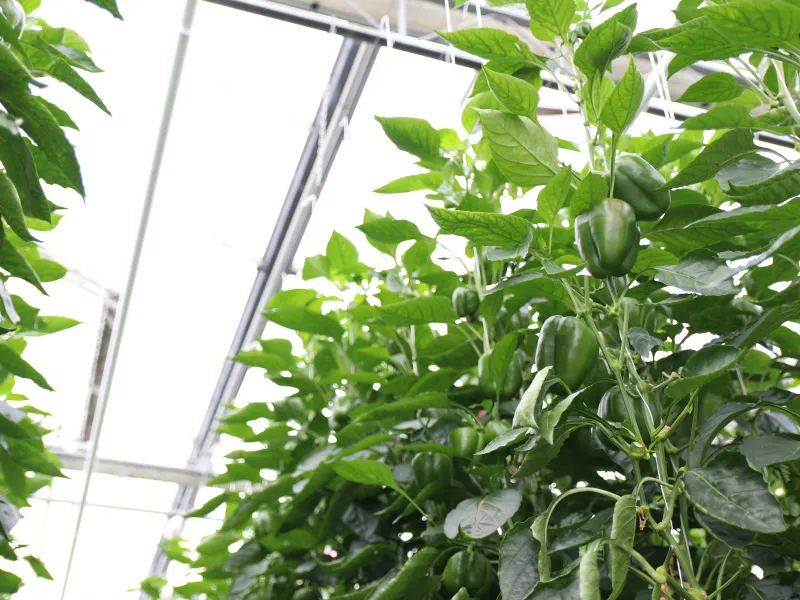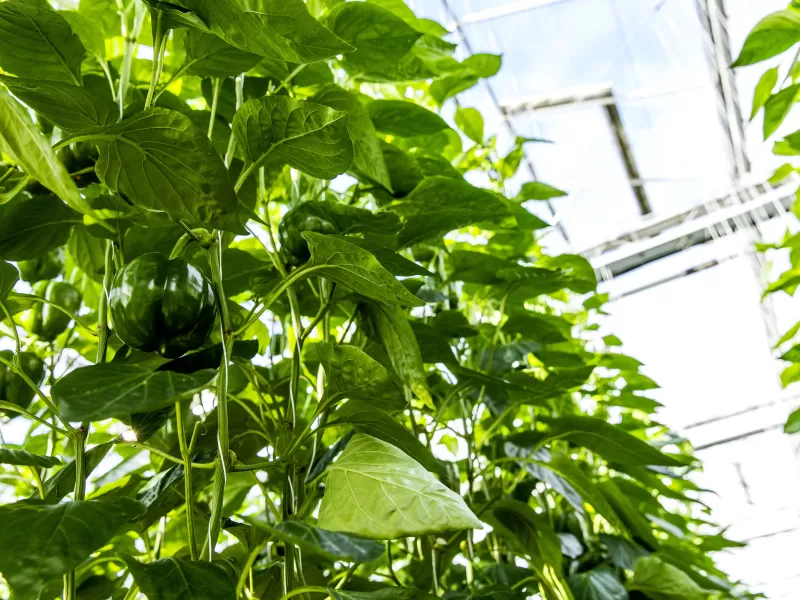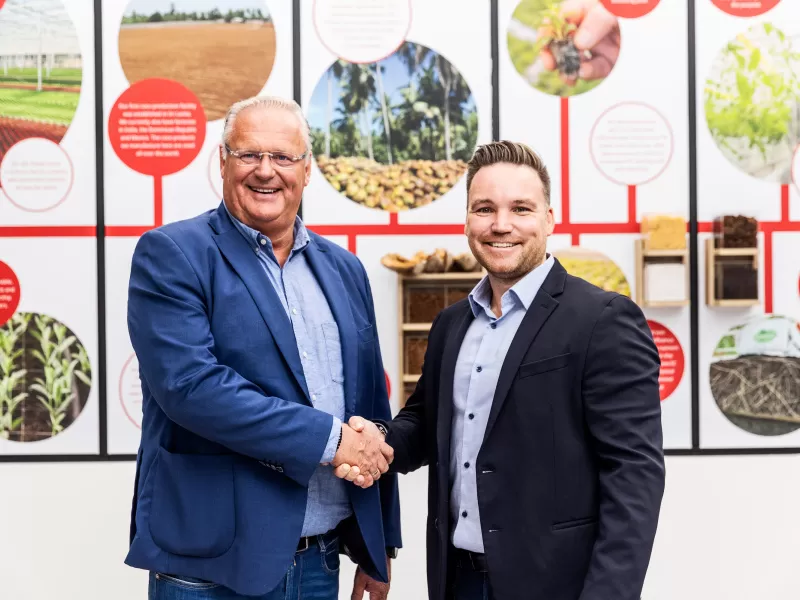This sustainable cultivation system enables organic cultivation, separately from the soil. New research is focused on developing a fertiliser that is rich in calcium and potassium nitrate, made from animal manure.
Circular fertiliser
Karel de Bruijn, Director of Sustainable Growing Systems, was convinced that the bio-reactor could be used for other applications too: “Our organic water system (OWS), gives us a great in-house process that can handle multiple raw material flows. We already had that technology.”
The frenzy surrounding nitrogen emissions and manure surpluses in the livestock industry gave De Bruijn a few ideas. “We took up the challenge to turn slurry into a useful product for horticulture. It worked out really well. We have developed a high-quality, circular and organic fertiliser that mainly consists of calcium and potassium nitrate.” The produced nutrient solution can be applied in substrate cultivation.
Field trials
In order to test the fertiliser with circularly produced calcium and potassium nitrate in practice, two cucumber trials were successively performed last year with the circular fertiliser. The tests took place in our own innovation centre ‘de Kas’ on a surface area of 125 m2. Wageningen University & Research BU Glastuinbouw (Greenhouse Horticulture) were involved in the research as an objective party. During the trials, the nutrient solution with the circular fertiliser was compared with a mineral fertiliser that is commonly used for cucumber cultivation.
Cultivation was carried out in spring and autumn, both on coco substrate. The aim of the trial was to develop a fertiliser that achieves similar results as conventional fertiliser in terms of crop development and production. The main raw material of the circular fertiliser, pig manure, contains a considerable amount of sodium. Therefore, the sodium content of the mineral fertiliser was set at the same level as the circular fertiliser, to allow for objective comparison. This was important, because the sodium level may affect the absorption of other nutrients.
Conclusions
The results of the spring and autumn cultivation show no differences in production between the circular and the mineral fertiliser. The results were virtually the same in terms of yield and fruit quality, as well as height growth and leaf surface area. The uptake of nutrients by the crop showed no difference either between the circular and the mineral fertiliser. The availability of nutrients for the plant was the same for both fertilisers. The higher sodium content of the circular fertiliser is a point of concern. We are working hard to fix this.
More information?
If you would like to receive more information about our sustainable growing systems, please contact us at rd@vanderknaap.info.
This article appeared in newsletter Grow-How! no. 31



